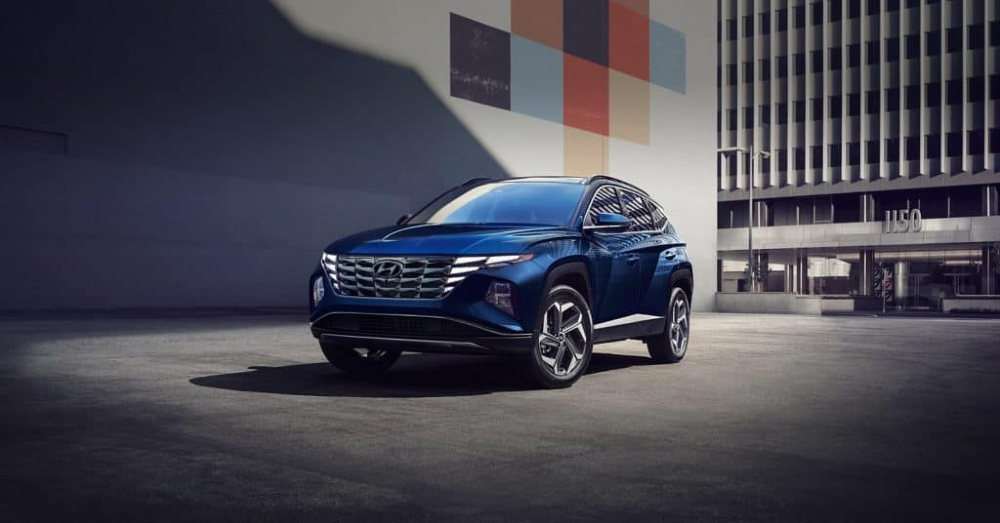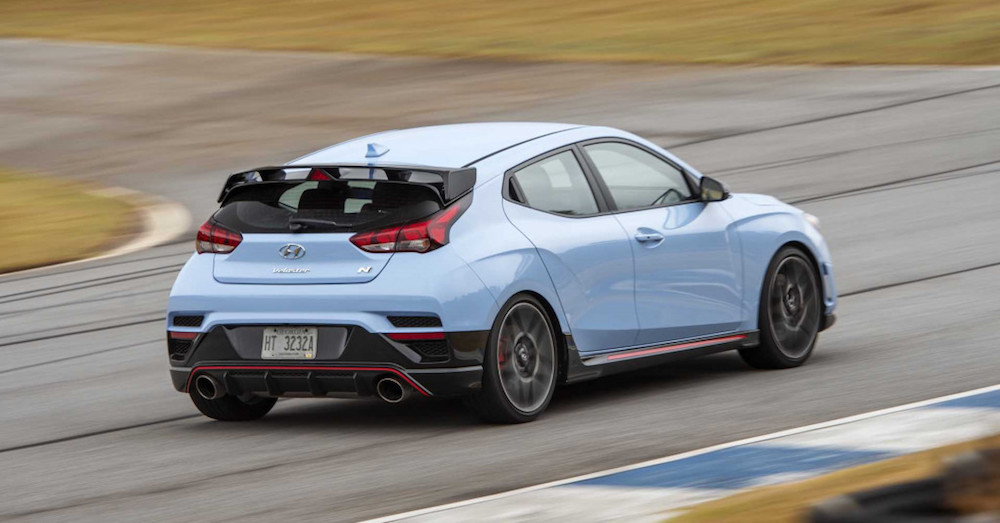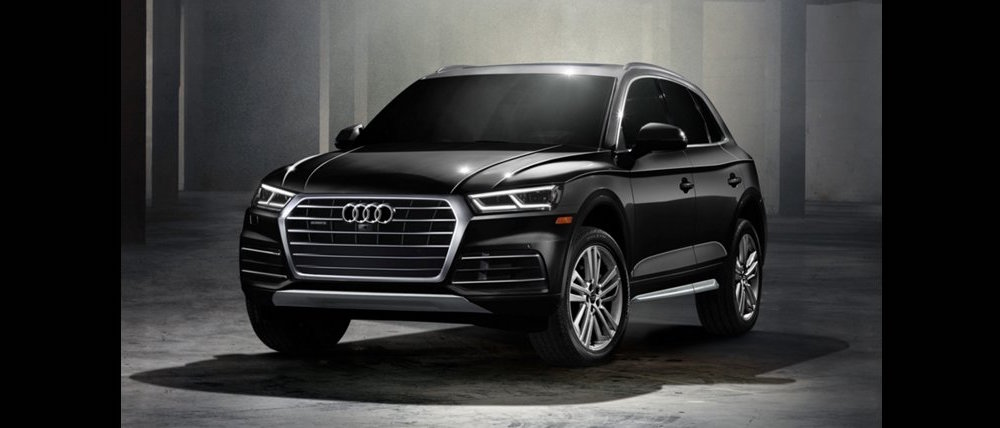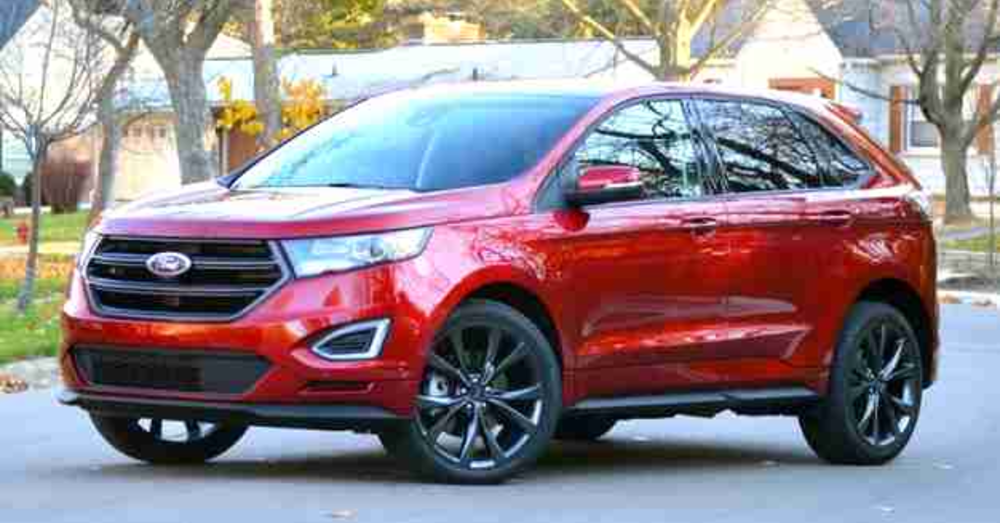Looking for a compact SUV that won’t break the bank at the gas pump? Hyundai offers two compelling options with the Tucson and Hyundai Tucson Hybrid models. With similar names and similar looks, it’s hard to know which Tucson provides the best blend of efficiency, performance, and value.
Here’s what you need to know about the Tucson and the Hyundai Tucson Hybrid.
Miles Per Gallon Showdown
The Hyundai Tucson Hybrid leaves its gas-powered sibling in the dust when it comes to fuel efficiency, with EPA combined ratings of 37-38 mpg compared to 23-32 mpg for the standard Tucson. This efficiency gives the Hybrid the edge in overall driving range, too, with a maximum highway range of around 520 miles versus 450 miles in the gas variant.
Horsepower and Torque Tug-of-War
The Hybrid’s 1.6-liter turbo engine puts out more peak horsepower at 226 hp, surpassing the 187 hp generated by the gas Tucson’s 2.5-liter four-cylinder. When it comes to torque, the tables turn in favor of the standard Tucson and its 178 lb-ft over the Hybrid’s 195 lb-ft. For towing, it’s a dead heat with 2,000 lbs. capacity for either model.
Hauling People and Cargo
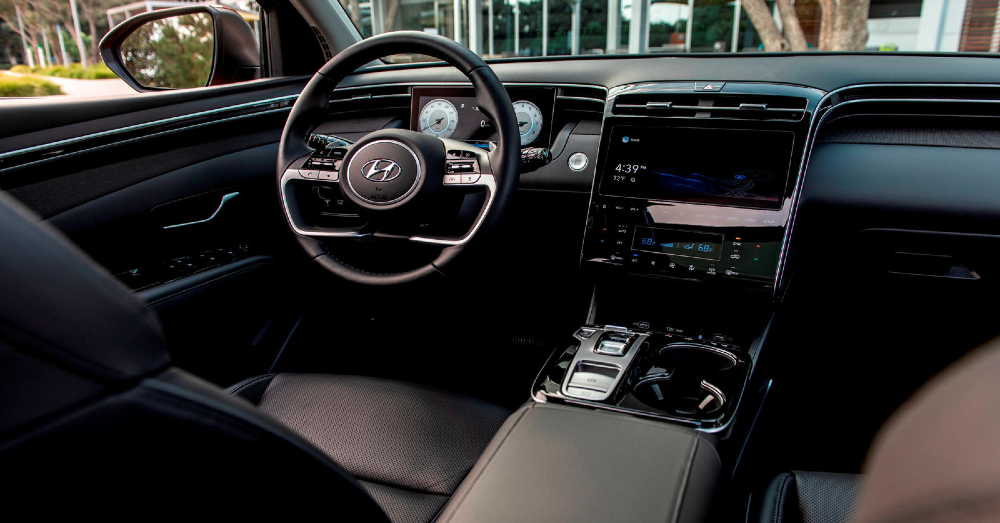
You won’t find any difference in passenger space between the Tucson twins: legroom, headroom, and shoulder room are all identical in both front and back seats. Cargo room behind the rear seats is the same, too, with around 80 cubic feet in either SUV. Overall, interior dimensions match up as well. The Hybrid doesn’t give up any practicality compared to its gas-powered sibling.
Cabin Tech and Convenience
The Tucson and Hyundai Tucson Hybrid share all the same standard and available tech goodies, including large touchscreens, digital driver displays, wireless device connectivity, and the latest driver assistance systems. Unique to the Hybrid is an available solar roof to help charge the battery. Unique to the gas model is an available full panoramic sunroof to brighten the interior.
Both Tucson variants earn top safety marks, though NHTSA gives a slight advantage to the gas model with a five-star overall rating versus four stars for the Hybrid. The gas variant also snags the IIHS Top Safety Pick+ award. Collision protection is robust in either Hyundai SUV, so you can hit the road with peace of mind.
The Price You Pay
The base Tucson Hybrid starts around $33,000, exceeding the gas Tucson by a few thousand at $29,000. In contrast, the Hybrid’s fuel savings can help make up the difference over time. Resale value forecasts give the gas model an edge as well. Well-equipped versions of both land in the $35,000-$40,000 range.
Hyundai Tucson Hybrid vs. Tucson: One Wins Gas, One Wins Hybrid
The Tucson Hybrid is the champ for fuel efficiency and powertrain refinement, while the gas-powered Tucson takes the crown for affordability. Both deliver expected Hyundai value, versatility, and features; they both come with Hyundai’s stellar warranty. The Hybrid makes sense if maximizing MPG is paramount. The standard Tucson remains a smart, compact SUV pick for most.

